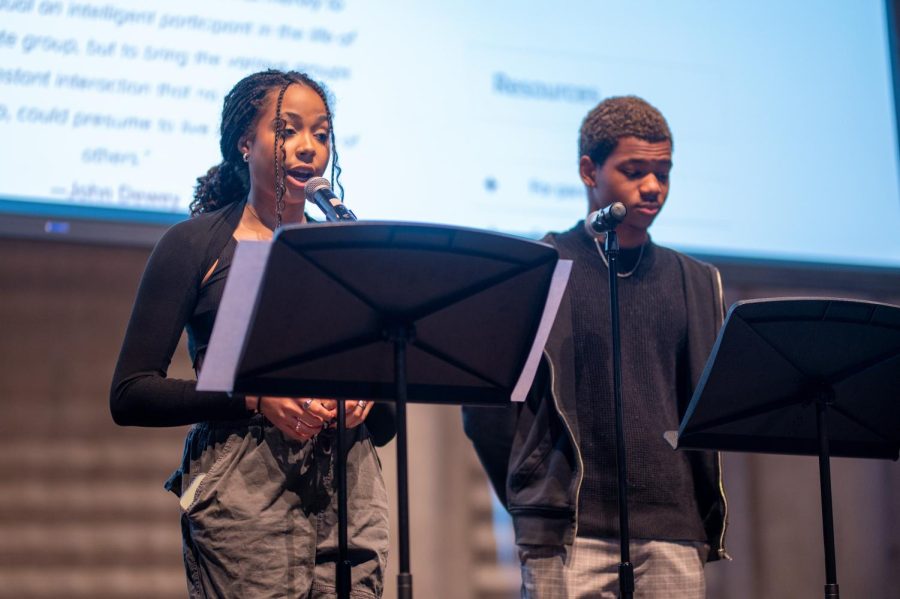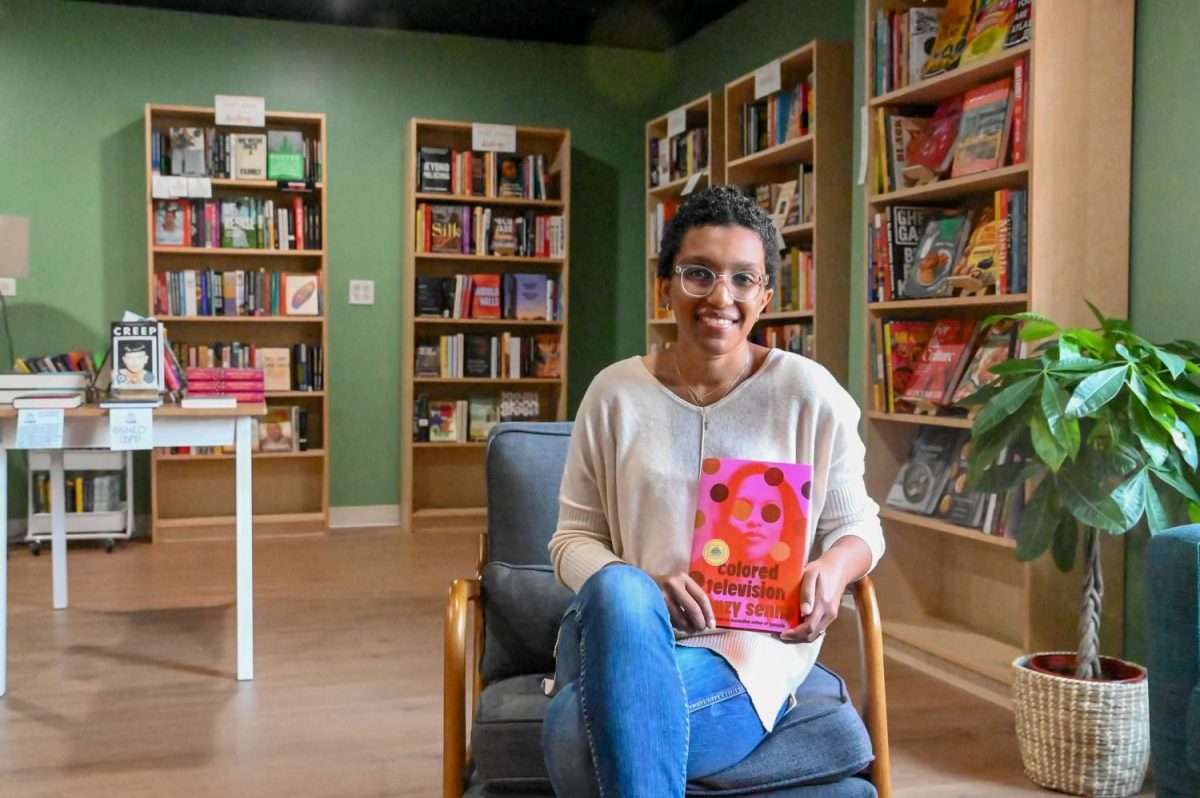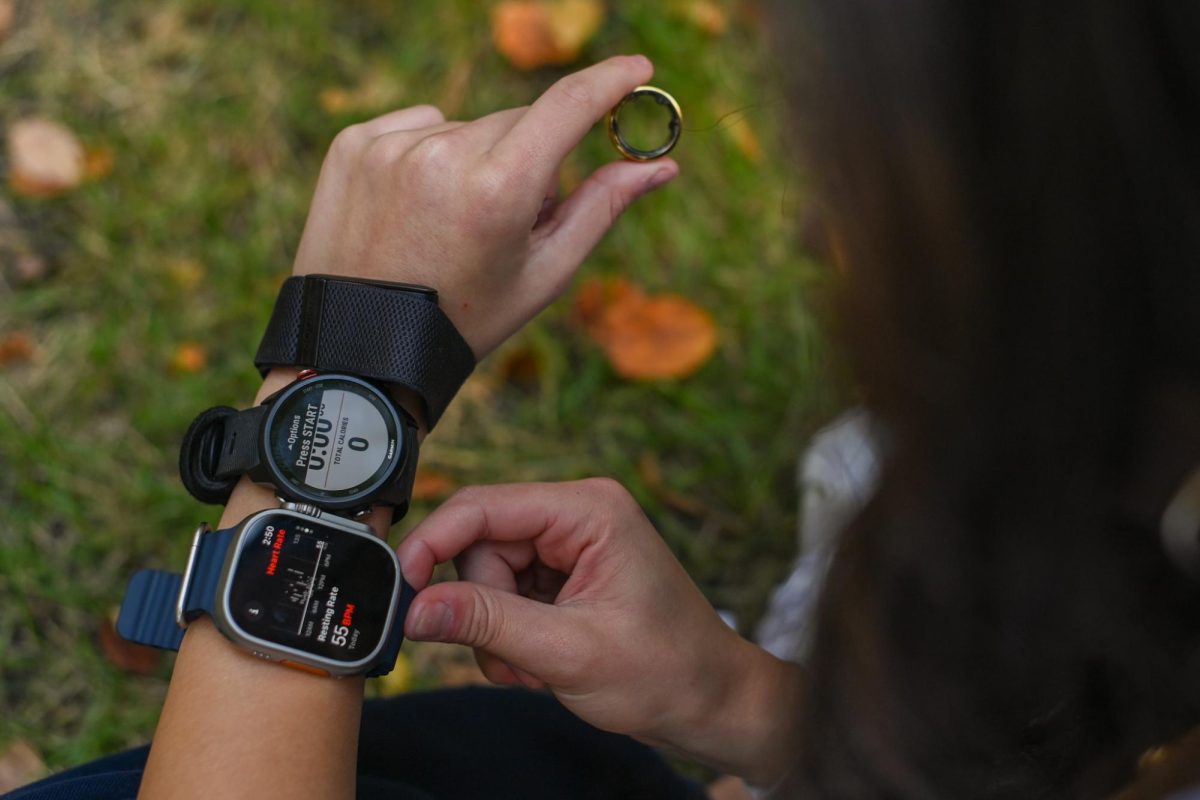BSA leaders abruptly end MLK assembly with walkout to protest discrimination
Moments before students walked out of the assembly, BSA co-presidents Camille Bryant and Michael Ewing discuss how students of color continue to feel unwelcome at school.
January 12, 2023
Updated Jan. 19: The text for the Black Students’ Association speech given at the MLK Assembly on Jan. 12 has been linked to the bottom of this story for context.
As students and faculty entered the Griffin Auditorium on Jan. 12, they expected another typical MLK assembly. It was not a normal assembly in the slightest. In what came as a surprise, student leaders of the Black Students’ Association and other identity-based groups walked out of the auditorium 20 minutes after the assembly began to protest discrimination they and their peers experience at school.
Just minutes earlier, the audience had entered the auditorium as a video of Black musicians playing “Lift Every Voice and Sing” coupled with photos of influential Black figures flashed across the stage screen. At the time, most audience members were under the impression that the first in-person Martin Luther King assembly since 2020, would discuss civil rights and social justice with speeches, videos and performances.
A moment of silence in tribute to secretary Elaine Robison, who died in June, led by BSA advisers Heavenly Hicks and Camille Baughn-Cunningham, kicked off the assembly. They shared their experiences working with Ms. Robison over the years to plan the logistics of the MLK assembly.
Then, BSA co-presidents Camille Bryant and Michael Ewing explained that the assembly would diverge from the traditional MLK-related theme and introduce a different one: “Black is…,” focusing on the discrimination students experience within the Lab community. Camille and Michael described how some students, especially Black students, continue to feel unwelcome at school.
“After the events of this year, we find ourselves asking questions,” Camille said in the assembly. “Is society at a standstill? Is Lab at an impasse? Are we celebrating and informing, or are we just pandering? And if we have not reached an impasse, why has our school community made little progress toward belonging? Why do we, as students of color, still feel like outsiders at a place that should feel like home?”
Disappointment and frustration with discriminatory behavior and community responses to such behavior were expressed through a series of narratives from Black students.
“We are not advocating for censorship. We’re not asking for an end to free speech,” Michael said. “We’re asking for Lab, at every level, to respond immediately and directly to acts of injustice and hate … and until that call is answered, we no longer see the benefit in this MLK assembly.”
Immediately, the BSA leaders, joined by peers from other identity-based groups, walked out of the auditorium. Some students in the audience applauded the departing students. Soon, the audience members themselves left, realizing the assembly was over.
Reactions to the walkout elicited a wide range of reactions from students and faculty. Senior Akshay Puri felt the assembly was a positive act for the school’s culture.
“I found the assembly incredibly impactful and unexpected,” Akshay said. “I would say that out of all the time I’ve been at Lab, there’s a level of thoughtfulness and discussion that’s more than I’ve ever seen.”
Sophomore Wendell He said that although they were slightly surprised, they believe BSA’s reasoning for the walkout was clear.
“I was talking with a friend as we were coming in, and she was questioning the impact of these assemblies,” Wendell said. “We do them every year, but it doesn’t do anything to change the amount of hate crimes and other issues with discrimination. I understand why BSA would decide to do this and I support them. It was really bold and well-delivered, especially with the last couple lines and [when] they all walked out silently. It was really nice and refreshing in comparison to this stale, annual tradition of just having these assemblies each year.”
While most students expressed support for the walkout, some students were confused about the intended message. One student acknowledged that racist incidents should be addressed but felt the walkout was unnecessary.
For some teachers, the conclusion of the assembly will impact the classroom environment. English teacher Phillip Sudderberg said the walkout was a brave and powerful statement that will make a profound impact on the Lab community and himself.
“I thought it was really brave and I hope that BSA feels empowered because of what they did on that stage with the whole school present,” Mr. Sudderberg said. “It’ll definitely inform how I think of the rest of the year and how I teach in my English classrooms.”
Michael Ewing’s quote was updated Jan. 13 at 11:46 a.m. for better accuracy.













Edmund Bolton • Jan 14, 2023 at 6:25 am
Instead of rehashing MLK exploits the destruction of civil rights amendment by our Supreme Court and barring of discussion of slavery in many of US SCHOOLS should be discussed. MLK should not be discussed without noting the destruction of his dreams